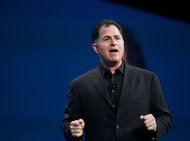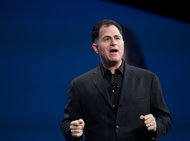“In recent times, negotiations stalled somewhat and I am in favor of opening a new chapter in order to move forward,” Ms. Merkel said in her weekly podcast, broadcast on Saturday.
She began her tour on Sunday with a visit to German troops who are deployed along the Turkish border with Syria.
There is significant skepticism within Ms. Merkel’s conservative Christian Democratic Union about Turkish membership in the European Union, but as Turkey has continued to grow and the economies of the bloc have stagnated, the dynamic has begun to change.
Germany and Turkey are bound tightly by the large population of Turkish guest workers who came to work in West German factories in the 1960s and remained. In addition, Turkey is one of Germany’s most important trade partners outside of the European Union, with an annual exchange of goods worth roughly $40 billion.
The country pushed through structural reforms to its economy and social services nearly a decade ago as part of its efforts to join the bloc, which have helped contribute to solid growth of about 5.2 percent annually between 2002 and 2011, according to Turkish government figures.
Günther Oettinger, a member of the Christian Democrats who now serves as the energy commissioner for the European Union, stirred debate in Berlin last week when he said in an interview with the newspaper Bild that he believed that if the European Union waited too long to revive negotiations with Turkey, it risked an eventual turning of the tables.
“I’d bet that within the next decade, a German chancellor along with their colleagues from France will go begging on their knees to Ankara saying, ‘Friends, come to us,’ ” Mr. Oettinger told the newspaper.
Turkey has complained bitterly about the lack of support from the German government for its accession campaign, which started in 2005. Recently, negotiations have all but ground to a halt over opposing views on crucial issues, including human rights and a divided Cyprus.
Ms. Merkel’s government and the Christian Democrats have for years called on the bloc to allow Turkey to achieve what they call a “privileged partnership,” instead of full membership. But important party members have begun to indicate their apprehensions toward Ankara may be changing.
France has also resisted the idea of Turkey’s full accession and, with Cyprus and the European Commission, has blocked movement on all but 13 of the 35 policy areas, called chapters, that countries striving for membership must complete. Turkey has so far completed only one.
But President François Hollande of France signaled last week that he was ready to open talks on one chapter blocked under the government of his predecessor, Nicolas Sarkozy.
Prime Minister Erdogan said in Istanbul that he was hopeful that Ms. Merkel’s comments and similar remarks by Mr. Hollande meant there could be renewed movement while the Irish presidency holds the European Union’s rotating presidency, which ends in July.
“Since Ms. Merkel came to office, she has repeatedly used the expression ‘privileged partnership’ about our European Union process,” Mr. Erdogan said, according to Reuters.
He said: “Now there is change in France and a difference in the views of Germany and France. Along with Chancellor Merkel’s positive statement on opening chapters, these will pay off during Ireland’s presidency.”
On Monday, she will hold talks in Ankara with Mr. Erdogan and President Abdullah Gul.
“I think a long negotiating path lies ahead of us,” Ms. Merkel said “Although I am skeptical, I agreed with the continuation of membership discussions. We are engaging in these with an open result.”
Article source: http://www.nytimes.com/2013/02/25/world/europe/merkel-gives-turkey-hope-for-eu-membership.html?partner=rss&emc=rss

